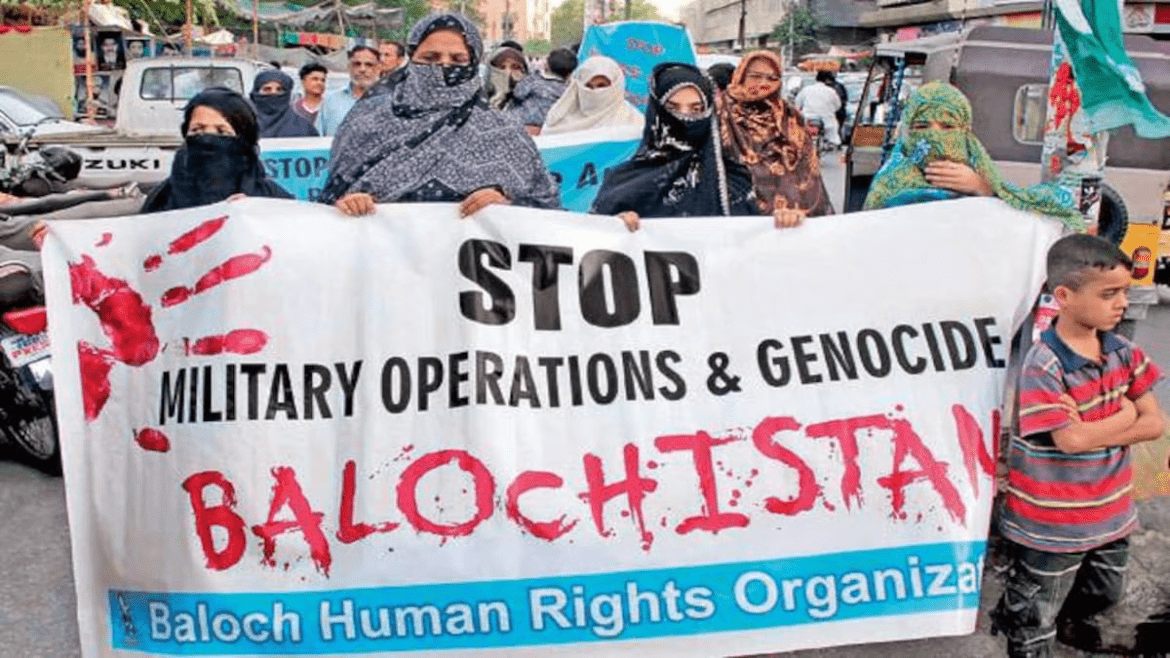AI Generated Summary
- In the end, the path to peace and stability in Balochistan lies not in repression but in addressing the grievances of its people and ensuring that they share in the province’s wealth and development.
- Despite a government ban and an internet blackout that lasted a fortnight, thousands of protesters from across the province gathered in Gwadar, a key coastal town and the site of a major seaport central to the China-Pakistan Economic Corridor (CPEC).
- While the protestors aimed to draw attention to the plight of their people through peaceful means, Pakistan’s heavy-handed response provoked violence, resulting in the deaths of three people, including a Pakistani soldier.
Balochistan, Pakistan’s strategically significant western province, has once again found itself at the center of a storm. For two tumultuous weeks, the province was gripped by widespread protests, which only subsided after a tense standoff with the government was resolved last Thursday. The demonstrators, who have long been vocal about their grievances, were protesting against enforced disappearances, alleged extra-judicial killings, and the denial of democratic rights to the Baloch people. Their demands were clear: a fair share of development and local economic resources, and an end to what they perceive as the exploitation of their province’s wealth.
These protests are not new; they are the latest chapter in a long-standing struggle by the Baloch people for justice. Yet, instead of addressing these deeply rooted issues, the state responded with force, attempting to quash the rising tide of discontent. Despite a government ban and an internet blackout that lasted a fortnight, thousands of protesters from across the province gathered in Gwadar, a key coastal town and the site of a major seaport central to the China-Pakistan Economic Corridor (CPEC).
The latest wave of protests, however, carried greater political weight, mobilizing unprecedented public support in a region known for its sensitivity. Over the years, simmering discontent has spread, reflecting the growing alienation of Balochistan’s population from the central government. Anti-government sentiments have flared across much of the province, highlighting the people’s frustration with the consistent denial of their basic democratic rights.
Balochistan is Pakistan’s largest province, covering 43 percent of the country’s landmass. It is endowed with rich mineral resources and is a major supplier of natural gas, boasting the world’s largest copper deposits and significant potential for oil, uranium, and other resources. Yet, paradoxically, it remains the poorest and least populated region in Pakistan, consistently ranking low on social development indicators. The much-publicized development under CPEC has done little to improve the economic conditions for the local population, fueling skepticism about Chinese-Pakistani projects.
At the core of the unrest lies the enforced disappearances of rights activists, which have further inflamed public anger against the Pakistani state. Thousands of Baloch men, including many young university students, have allegedly been detained by intelligence agencies, with little hope of their return. Human rights groups estimate that more than 3,000 people are missing, and the number of enforced disappearances and extra-judicial killings has surged as Pakistan grapples with a growing separatist militancy.
The recent protests were led by the Baloch Unity Council (BUC), a nationalist group spearheaded by Mahrang Baloch, a young, fiery doctor who has become a symbol of resistance against Pakistani oppression. A significant number of the demonstrators were women, many of whom have endured the anguish of having family members missing or found dead under mysterious circumstances.
While the protestors aimed to draw attention to the plight of their people through peaceful means, Pakistan’s heavy-handed response provoked violence, resulting in the deaths of three people, including a Pakistani soldier. Although the protests have temporarily subsided, the people of Balochistan remain deeply distrustful of the political system imposed on them. Pakistan’s authority is increasingly being challenged by the power of the people.
The most alarming consequence of this repression has been the rise in separatist militancy in Balochistan. For years, the province has been engulfed in a low-intensity conflict, experiencing four insurgencies since Pakistan’s independence. The latest phase of this conflict began nearly two decades ago, and Pakistan’s harsh crackdown is only driving the Baloch people to desperation.
The events of the past two weeks have made it clear that brute force cannot quell the legitimate struggles of the Baloch people. The continued unrest in the province not only threatens to disrupt vital development projects under CPEC but also underscores the urgent need for these projects to benefit the local population.
In the end, the path to peace and stability in Balochistan lies not in repression but in addressing the grievances of its people and ensuring that they share in the province’s wealth and development. The current approach by Pakistan, however, seems to be pushing Balochistan further away from this goal.
The opinions expressed in this article are those of the author. They do not purport to reflect the opinions or views of Khalsa Vox or its members.




